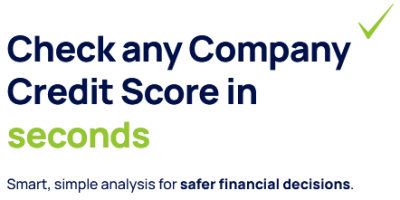Both companies and individuals must engage in risk avoidance by protecting their financial reputation with credit scores. However, when we consider business credit scores against personal credit scores, characteristics that serve a similar purpose are present but some of them are distinctive and affect decisions regarding finances, ability to borrow and well-being in finance. These kinds of differences are very important for the entrepreneurs, business owners, and individuals as they have to keep good credit profiles in both personal and professional dealings.
What is a Personal Credit score?
A personal credit score is a numeric scale assigning a value between 300-850 on the credit levels of individuals whose information is taken from clients information report bureau. This scale determines whether or not a specific individual, as a potential borrower, can be trusted to repay loans or control credits effectively. More points have lower risk associated with it, and thus such individuals rating allow favourable terms such as lower interest rates, and better payment plans.
Factors That Affect Credit Score Based on Individual Borrower Profile
There are various factors determining individual credit scores:
- Payment Patterns: Settling owed payments on time has the primary importance in the improvement of fortifying of the credit score.
- Credit Card: This is the ratio of total credit card debt to available credit limit. – High credit limits that exceed 30% of total available credit will have an impact on the score negatively.
- Time of Credit History: The longer these accounts are open, the better. Long, positive credit history indicates trustworthiness.
- Credit Accounts: Having well balanced credit accounts (credit cards, car loans, home loans etc.) serves well for the scoring.
- New Credit Accounts: Opening too many new accounts in a short amount of time can negatively affect credit scores for a little while because it demonstrates a higher risk rate over a shorter amount of time due to quick increase in inquiries.
What is a Business Credit Score?
Just as individuals have credit scores, so do businesses. And the business credit score is used to assess how financially stable the business entity under consideration is. These scores estimate the risk that the business will default on obligations to its creditors, suppliers and lenders, among others. High business credit ratings allow businesses to prefer favourable offers in financing as well as terms of doing transactions with suppliers.
Business credit scores usually start from 0 and go up to the maximum which is 100 depending on which system you use.
Factors That Impact Business Credit Scores
The business credit score is based on other factors than the personal credit one:
- Payment History: Like in personal credit, timely payment of bills, invoices and debts are key within the business credit score.
- Credit Utilisation: This metric looks into how much of the employer’s available credit is in use and how well this credit is utilised.
- Company Size and Industry: Companies tend to have a higher credit score if they are larger in terms of assets or industries where they are in.
- Age of the Business: The longer these businesses remain in practice, especially if the business remains financially stable, the better the credit score.
- Public Records: Many recorded judgments, bankruptcies and liens will sink a business credit score.
- Supplier Payment Practices: Better payment policies towards suppliers like early payments or on time payments will improve a company’s credit with other vendors or creditors.
Key Differences Between Business and Personal Credit Scores
Both credit scoring systems are designed to assess an individual’s creditworthiness but they are applicable in different spheres and there are some notable differences. An appreciation of these disparities is important for businesses that wish to establish good credit standing for themselves but separate them from the individuals’ credit.
1. Range of Scores
- Personal Credit Scores: When it comes to scoring, they usually go from 300 to 850.
- Business Credit Scores: Score ranges are usually between 0 to 100.
2. Data Sources
- Personal Credit: It is a total score formulated from such debts as credit cards, loans, mortgages etc.
- Business Credit: A business credit score relies on facts pertaining to trade payments and legal records and records that are publicly available.
3. Ownership and Separation
- Personal Credit: Your personal credit score is personal to you as a person rather than to any business you engage in.
- Business Credit: Business credit score is business based, in the sense that it is conferred to the corporation. However, there are situations like if a business is tech-based then the business credit has an impact on the owner’s credit.
4. Public vs. Private Information
- Personal Credit Scores: Information contained within a personal credit report is sensitive, as a result, it is only accessible by a certain group of people, and even then, only unless they have your consent.
- Business Credit Scores: Information regarding the creditworthiness of any business may be accessed by any member/citizen since its a public domain. Potential tycoons & Suppliers can use that information to assess the business standing of your company.
5. Effect on Investment Opportunities
- Personal Credit: Bad personal credit history may prevent you from getting personal loans or credit cards or may force you to pay considerably high rates of interest. The same may limit your ability to secure a business loan particularly for small scale businesses.
- Business Credit: Due to a positive business credit history a business can borrow equal or larger amounts of money at lower rates of interest with better terms. It is advisable that personal and business credits be kept separate to avoid confiscation of personal property due to business risks.
Understanding Credit Scores for Better Financial Health
Business credit scores and personal credit scores are crucial advantageous frameworks in the financial planning processes albeit working to achieve different targets and are obtained through different formulas. Keeping personal and business finances distinct allows one to avoid unnecessary exposure to risk and, moreover, paves a way for future development.
While experiencing the system of credit score provision, it is important to have accurate up-to-date business credit reports. Checkaco is one of the most renowned members in the industry of credit report building in the UK. We strive to make the process of obtaining trusted information much easier so that businesses can evaluate the risk they take, trust other businesses, or develop new partnerships.
It does not matter whether it is personal credit or business credit one is handling; information is power in most cases. When armed with appropriate plans, your credit profiles can be optimally used to avail opportunities to protect your financial status.

